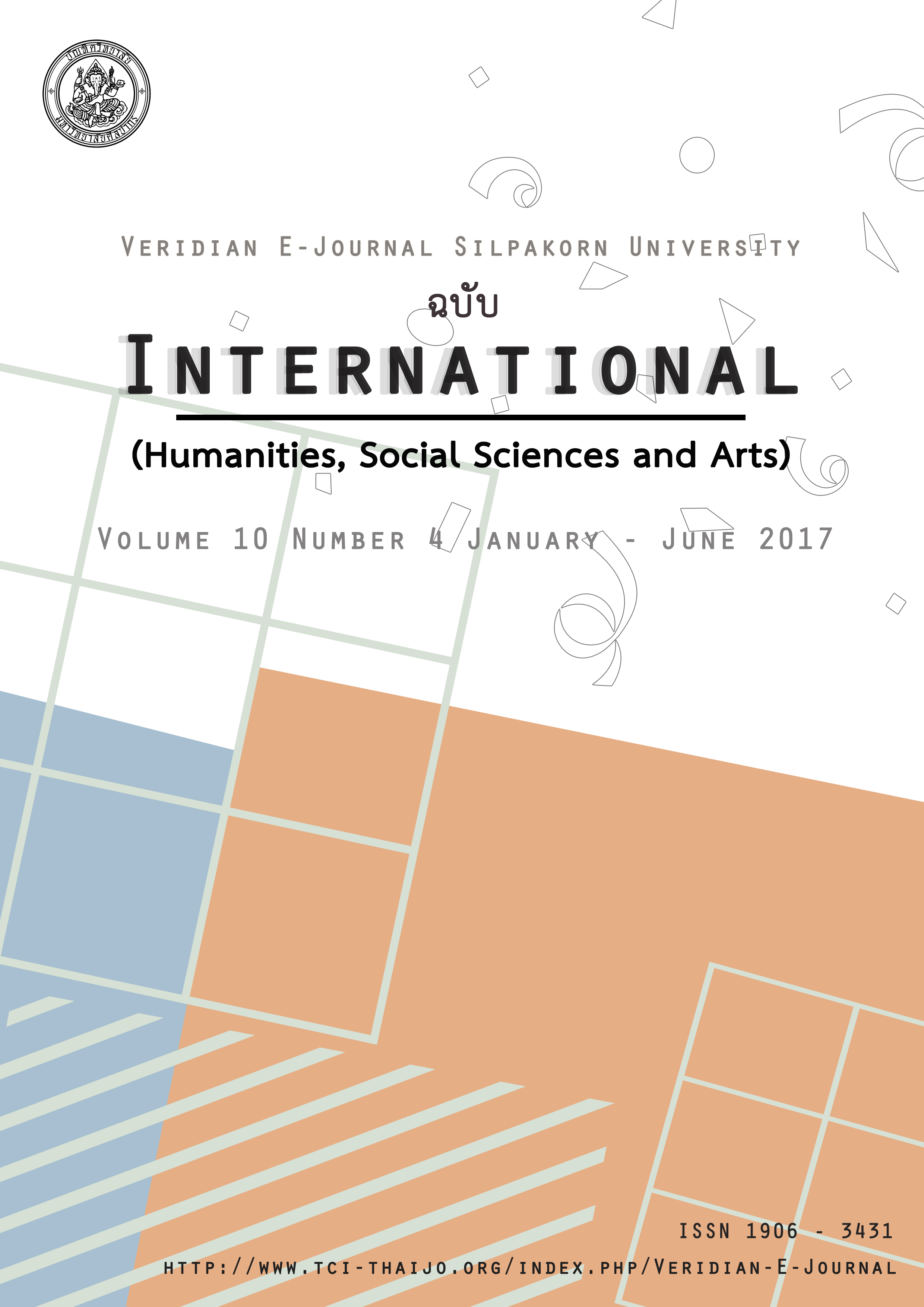Exploring Thai EFL Pre-service Teachers’ Level ofSelf –Efficacy and Its Sources
Main Article Content
Abstract
This study aimed to 1) investigate the level of self-efficacy beliefs of Thai EFL pre-service teachers before they experienced teaching practice, in the area of Efficacy of Student Engagement (SE), Efficacy in Instruction Strategies (IS), and Efficacy in Classroom Management (CM); and 2) explore sources of self-efficacy beliefs which have the strongest influence to the level of self-efficacy beliefs of the Thai EFL pre-service teachers before having teaching practice. For data collection, the Teachers’ Sense of Efficacy Scale (TSES) was administered by 26 Thai EFL pre-service teachers and then an open – ended questionnaire was employed. The verbal responses from the participants were analysed based on Bandura’s sources of self-efficacy. The findings indicated that the highest efficacy beliefs of the student teachers were Efficacy of SE and IS. On the other hand, their lowest sense of self-efficacy beliefs was Efficacy of CM. All of the three sub-factors were most strongly influenced by mastery experiences. The other two sources, verbal persuasion and physiological or emotional states, also affected the pre-service teachers’ self- efficacy beliefs, but they were less influential than the mastery experiences. However, vicarious experience had not found in the results.
งานวิจัยนี้มีจุดมุ่งหมายเพื่อ 1) ศึกษาระดับความเชื่อด้านความความสามารถของตนเองของนักศึกษาฝึกสอนวิชาเอกภาษาอังกฤษก่อนที่จะไปปฏิบัติการสอนจริง ภายใต้หัวข้อต่อไปนี้ ความสามารถในการสร้างความมุ่งมั่นให้กับผู้เรียน ความสามารถด้านการใช้กลยุทธการสอน และความสามารถในการจัดการชั้นเรียน 2) สำรวจถึงแหล่งที่มาที่มีอิทธิพลที่สุดในการเกิดความสามารถของตนเองของนักศึกษาฝึกสอนวิชาเอกภาษาอังกฤษก่อนที่จะออกไปปฏิบัติการฝึกสอนจริง สำหรับการเก็บข้อมูล ผู้วิจัยได้แจกแบบวัดความสามารถของตนเองสำหรับครูให้นักศึกษาฝึกสอนจำนวน 26 คน หลังจากได้ผลจากการวัดระดับความสามารถของตนเองแล้ว ผู้วิจัยได้แจกแบบสอบถามแบบปลายเปิดซึ่งดัดแปลงมาจากผลของการตอบแบบสอบถามชุดแรกของนักศึกษา ผลจากตอบคำถามปลายเปิดได้รับการวิเคราะห์โดยใช้หลักทฤษฎีที่มาของความสามารถของตนเองของ แบนดูร่า (Bandura’s sources of self-efficacy) ผลการวิจัยพบว่า นักศึกษาเชื่อว่าพวกเขามีความสามารถของตนเองในด้านการสร้างความมุ่งมั่นให้กับนักเรียนและความสามารถด้านการใช้กลยุทธการสอน มากที่สุด ขณะที่ความเชื่อว่าตนเองมีความสามารถในด้านควบคุมชั้นเรียนมีน้อยที่สุด แหล่งที่มาของการเกิดความสามารถของตนเองที่มากที่สุดของความเชื่อเหล่านี้เกิดจากประสบการณ์ตรงของนักศึกษา ส่วนแหล่งที่มารองลงมาอีกสองแหล่งคือการได้รับคำแนะนำจากผู้อื่น และการควบคุมสภาวะทางกายและทางอารมณ์ของตนเอง ส่วนแหล่งที่มาในการเกิดความเชื่อด้านความสามารถของตนเองที่ไม่พบในการศึกษาครั้งนี้คือ การรับรู้จากประสบการณ์ของผู้อื่น

